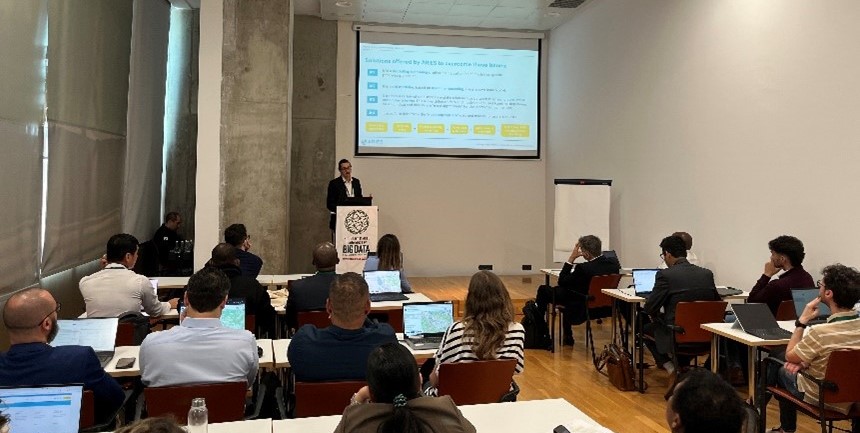8th International Conference on Big Data and Data Science for Official Statistics

This Conference is the flagship event of the UN Committee of Experts on Big Data and Data Science for Official Statistics (UNCEBD), which takes place about every other year. The theme of this year’s Conference was “Informing Climate Change and Sustainable Development Policies with Integrated Data”. This year’s Conference, which took place in Bilbao, Spain, from 10-14 June 2024, was hosted by the Basque Center of Climate Change (BC3), the developers of ARIES for SEEA, an integrated, open-source modelling platform for environmental sustainability with a particular application to support the compilation of SEEA Ecosystem Accounting. As such, the SEEA community had a prominent role in the organization and the substantive agenda of the Conference this year.

The Conference consisted of an opening day with high-level dialogues between policymakers and statisticians, followed by three days of more focused sessions and a day and a half of technical training workshops. The sessions included, among others, informing climate change policies for Latin America and the Caribbean using AI and data innovation, assessing physical and transition risks of climate change, relating climate change and health, measuring the sustainability of tourism, informing biodiversity policies, as well as more data-focused sessions on knowledge commons, data science and SDG localization, data science and transport, and use of geospatial information to develop ecosystem extent maps. About 250 people participated from over 100 organizations of over 40 countries.

In the opening ceremony, a video message from Mr. Li, the United Nations Under-Secretary-General, was presented in addition to statements by the Mr. Imam Machdi, Acting Chair of the UNCEBD, Ms. Elena Manzanera, President of the national statistical office of Spain, Ms. Maria José Sanz, Scientific Director of BC3, and Mr. Jokin Bildarratz, Minister of Education, Science and Technology of the Basque Government. The opening segment was followed by three high-level panels on Climate Change and Biodiversity, Sustainability of Tourism, and Knowledge Commons for Global Sustainability Challenges, respectively. Overall, the Conference highlighted the importance of integrated data to support climate change and sustainable development policies and the role of technology to harness and integrate information.
The SEEA featured in a number of sessions, including the high-level panel on climate change and biodiversity on first day, a session on informing biodiversity through the use of big data, a session on integrated modelling for ecosystem extent mapping and ecosystem services, as well as a technical training workshop on ARIES for SEEA. Details of the Conference can be found at: 8th International Conference on Big Data and Data Science — UN-CEBD.
Session on “Informing biodiversity policies through use of big data, remote sensing and citizen science"
The session “Informing Biodiversity Policies through Use of Big Data, Remote Sensing, and Citizen Science” explored the critical role of advanced technologies in monitoring and measuring biodiversity and meet the requirements of the Kunming-Montreal Global Biodiversity Framework (GBF). The first part of the session focused on the information needs of current global initiatives, with speakers from relevant organizations presenting the data demands for the monitoring framework of the GBF and how the SEEA supports the information for some of the headline indicators of the GBF. A panel discussion followed, where representatives from countries and international organizations shared their experiences and reflections on data production and challenges of integrating data from a variety of different sources into national and global biodiversity monitoring frameworks.
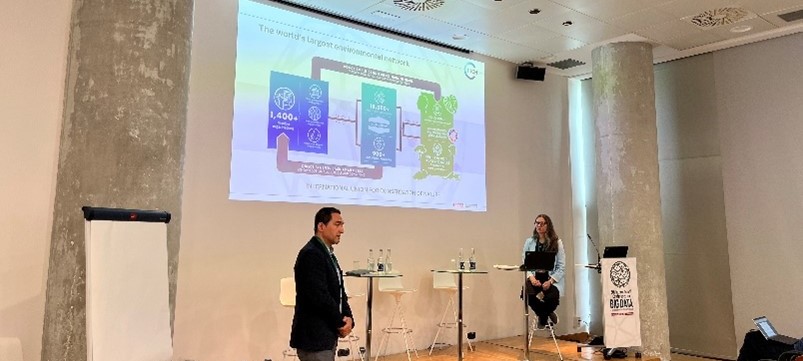
The second part of the session focused on challenges and opportunities of using big data, remote sensing and citizen science to inform biodiversity monitoring. Several examples of these types of data were presented, followed by a panel discussion on the opportunities and challenges of these data sources, including satellite observations, and how to integrate citizen science data into official statistics. The discussion emphasized the need to address data biases and data quality, access issues, and interoperability to maximize the benefits of leveraging of new data sources for biodiversity policymaking.
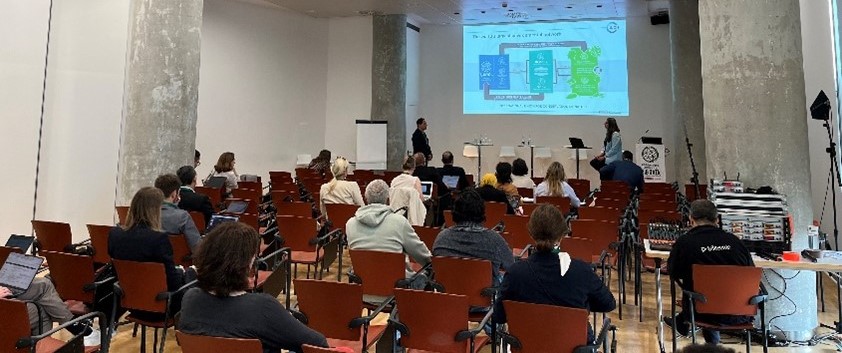
Session “Integrated modelling for ecosystem extent mapping and ecosystem services”
The session “Integrated Modelling for Ecosystem Extent Mapping and Ecosystem Services” discussed the development of ecosystem extent maps and models for ecosystem services, aiming to support SEEA Ecosystem Accounting and the GBF. The first part focused on the importance of ecosystem maps for ecosystem accounting, the role of a common global classification of ecosystems, and the GEO Atlas initiative to develop global ecosystem maps. A panel discussion explored the roles of national and global maps, satellite observations, and land cover and land use maps for ecosystem mapping and addressing the challenges of data integration.
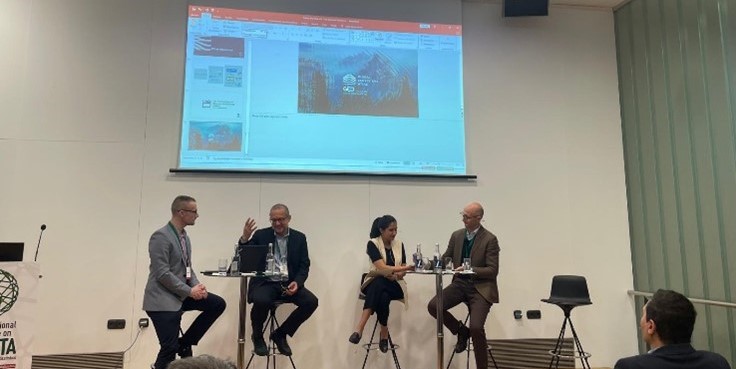
The second part provided an overview of ecosystem services, and how they are recorded in the SEEA Ecosystem Accounting. Presentations also covered considerations on the local-to-global continuum for modelling ecosystem services, as well as showcasing a practical approach for biophysical modelling of ecosystem services. The final part of the session started with a presentation on the interoperability strategy for the next generation of SEEA accounting and discussed the importance of interoperability and how to ensure interoperability of models, reflecting local information in global maps, and overcoming challenges faced by national statistical offices in adopting interoperability standards.
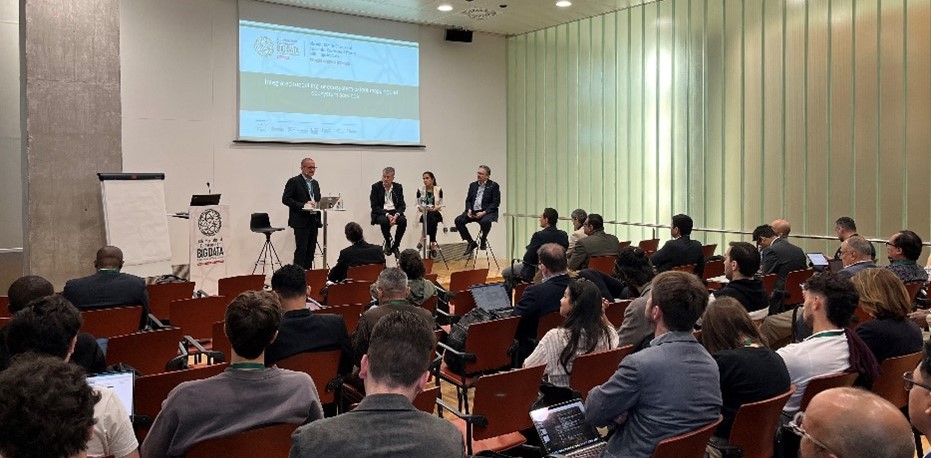
ARIES for SEEA workshop
The ARIES for SEEA workshop was held for the last day and a half of the Conference and provided technical training on the use of the ARIES for SEEA platform to about 25 practitioners from national statistical offices. Participants were introduced to the ARIES platform and its integration with SEEA Ecosystem Accounting, and featured practical hands-on exercises on using the ARIES for SEEA Explorer and the k.Lab modeler. The workshop walked participants through each of the accounts in the SEEA Ecosystem Accounting, i.e., ecosystem extent accounts, ecosystem condition accounts and ecosystem services accounts, providing theoretical introductions, practical hands-on exercises, and data interpretation using ARIES for each of the accounts. The workshop concluded with discussions on practical steps for getting started with ARIES for SEEA and leveraging the UN Global Platform for the compilation of environmental-economic accounts.
